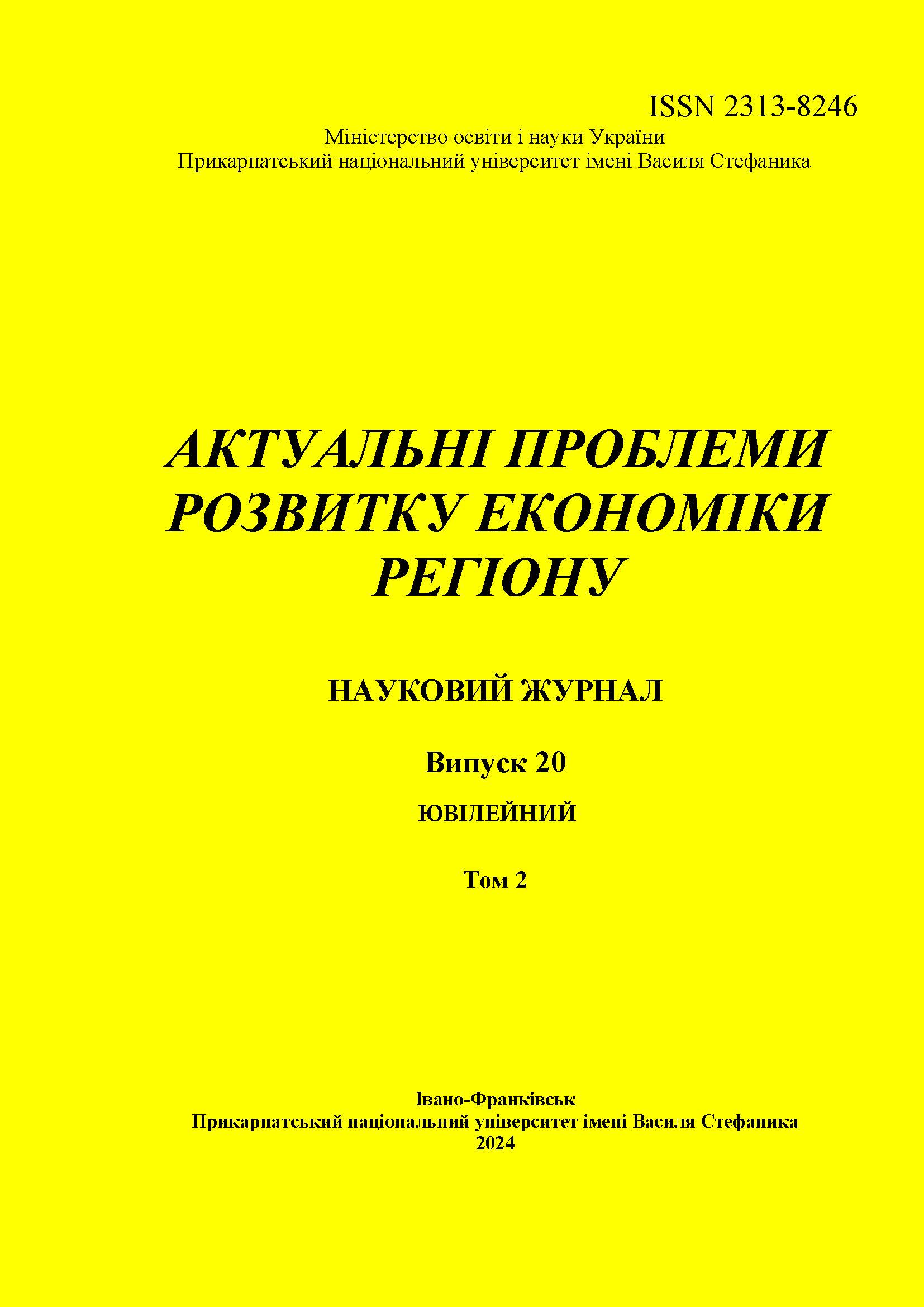FINANCIAL LITERACY OF THE POPULATION AND DEVELOPMENT OF THE NATIONAL ECONOMY
DOI:
https://doi.org/10.15330/apred.2.20.61-68Keywords:
financial literacy, financial illiteracy, economic development, national economy, financial system, financial education, increasing financial literacyAbstract
The article examines the essence of financial literacy, defines its current state and influence on socio-economic processes in the conditions of modern development, considers the sources of improving the financial culture of the population. This scientific article is devoted to the study of the relationship between the level of financial literacy of the population and the economic development of the country. In particular, the influence of the level of financial literacy on the formation of an effective financial system and support of the national economy is considered. The article is based on the analysis of the current state of financial literacy among the population and its impact on key indicators of economic growth. The role of education, information technologies and other factors in the formation of financial skills and abilities among the population is studied. This article notes the importance of financial literacy of the population and its impact on the development of the national economy. The issue of financial literacy of the population regarding the development of the national economy as a whole remains insufficiently researched, which also indicates the relevance and practical significance of this study. The purpose of this article is to study the theoretical and practical aspects of national financial literacy and the direct impact of national financial literacy on the economic development of the country. The purpose of this article is to study the theoretical aspects of the financial literacy of the population and the direct impact of the financial literacy of the population on the economic development of the country. The issue of theoretical validity and practical regulation of the process of financial literacy of the population in relation to the development of the national economy as a whole is still insufficiently researched, which also indicates the relevance and practical significance of this study. Analysis of world experience confirms the undeniable need for financial literacy of the country's population, which will make it possible to improve not only the well-being of citizens, but also contribute to the stability and economic development of the state. Financial literacy of the population in the modern world is becoming a key factor in the successful economic development of the state. The ability of citizens to understand and effectively use financial resources for the purpose of not only their financial stability, but also affects the macroeconomic situation in the country, insufficient financial literacy can lead to mismanagement of personal finances, accumulation of debt and failure to achieve financial goals. The purpose of the article is to study the theoretical and practical aspects of the financial literacy of the population and the direct impact of the financial literacy of the population on the economic development of the country. Financial literacy of the population is becoming a key component of the country's economic development. It plays an important role in ensuring sustainable growth of the national economy and a higher standard of living of citizens. In the context of globalization and the growing influence of financial markets, the understanding of basic financial concepts and the skills of managing public finances are of strategic importance for the stability of the economy.
References
Financial literacy: textbook / author. number; edited by T. Smovzhenko. Kyiv, UBSNBU, 2014.
Brechko, O. «Financial and digital literacy as basic components of the development of the modern information society.» Regional aspects of the development of productive forces of Ukraine, issue 24, 2019, pp. 129-135.
Havrylko, T. O., and M. M. Dovgan. «Financial literacy of the population: domestic and foreign experience.» Black Sea Economic Studies, issue 30 (2), 2018, pp. 48-52.
Dudchik, O. Yu., and I. O.Matviychuk. «Financial literacy of the population: theoretical aspects, problems and prospects for improvement in Ukraine.» Market infrastructure, issue 31, 2019, pp. 631-635.
Doroshenko N.O., Romaniv V.V. «Financial literacy of the population of Ukraine.» Efficient economy, no. 11, 2018, www.economy.nayka.com.ua/pdf/11_2018/81.pdf. Accessed 9 May 2024
Kalinichenko, O. O., Vikarchuk, O. I., and S. M.Nikolayenko. «Financial literacy is the key to a successful population.» Economy. Management. Innovations. Ser. : economic sciences, issue 1, 2019. Vernadsky National Library, nbuv.gov.ua/UJRN/eui_2019_1_5. Accessed 9 May 2024
Savchuk, N. «Financial literacy: essence and development prospects.» Pedagogical innovations: ideas, realities, perspectives. Ser.: philosophical sciences, issue 1, 2021, pp. 92-97.
Shchyokina, E. Yu., Cherepanova, N. O., and O. A. Guzhva. «Financial literacy as a guarantee of social and economic development of the state.» Economic sciences. Ser.: regional economy, issue 17, 2020, pp. 296-302.
Yurii, S.I., and T.O.Kizima. «Financial literacy of the population in the dialectic of modern educational trends.» Theory and history of finance, finukr.org.ua/docs/FU_12_02_016_uk.pdf. Accessed 9 May 2024
Downloads
Published
How to Cite
Issue
Section
License

This work is licensed under a Creative Commons Attribution-NonCommercial-NoDerivatives 4.0 International License.
- Authors retain copyright and grant the journal right of first publication with the work simultaneously licensed under a Creative Commons Attribution NonCommercial NoDerivs 4.0 Unported License that allows others to share the work with an acknowledgement of the work's authorship and initial publication in this journal.
- Authors are able to enter into separate, additional contractual arrangements for the non-exclusive distribution of the journal's published version of the work (e.g., post it to an institutional repository or publish it in a book), with an acknowledgement of its initial publication in this journal.
- Authors are permitted and encouraged to post their work online (e.g., in institutional repositories or on their website) prior to and during the submission process, as it can lead to productive exchanges, as well as earlier and greater citation of published work (See The Effect of Open Access)


